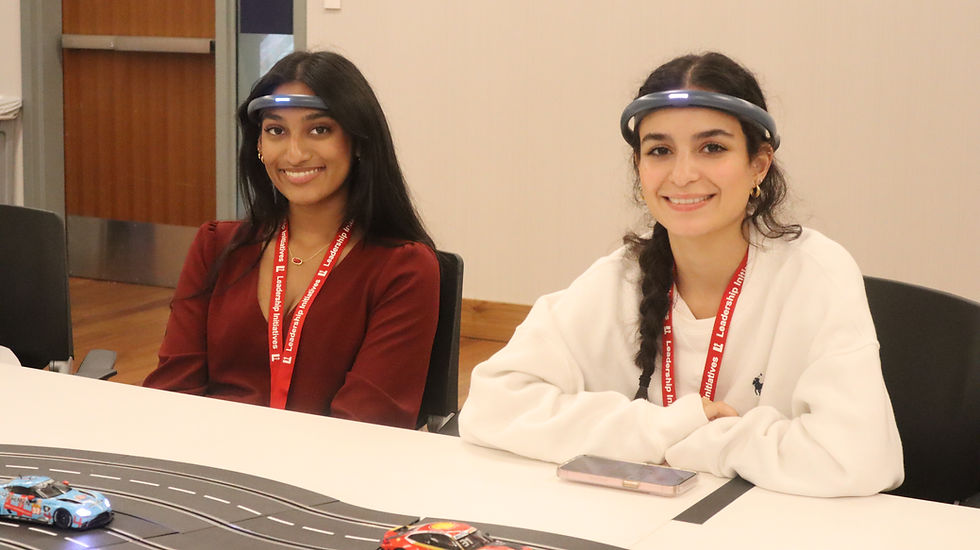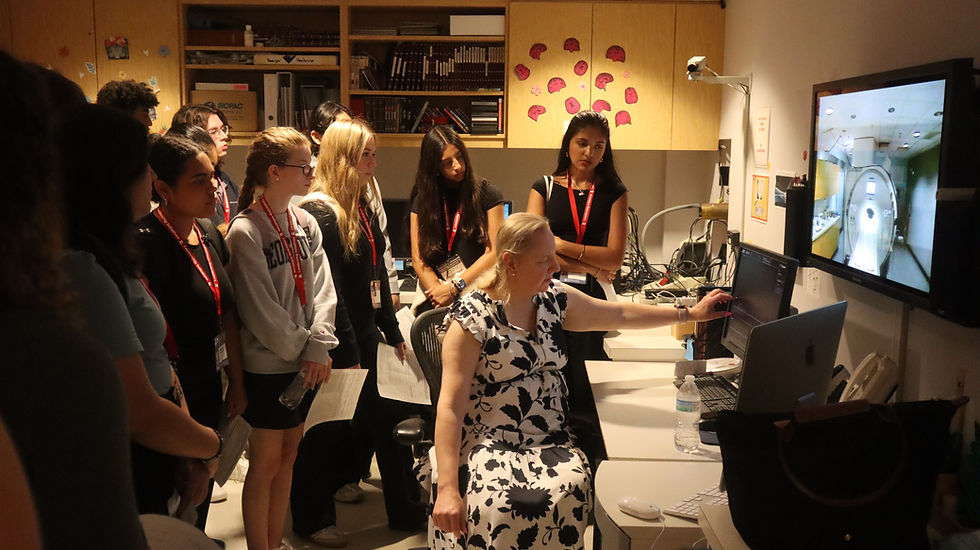The Power and Responsibility of Neuroscience
- Marshall Bailly
- Jul 10, 2025
- 2 min read
Today’s lectures pulled back the curtain on the complex and often uncomfortable realities of modern neuroscience. As advances in brain science push the boundaries of what’s possible, they also force us to wrestle with the consequences: Who controls this knowledge? How can it be used or misused? Dr. James Giordano invited interns to grapple with these urgent questions, presenting a sobering view of neuroscience on the world stage. Just when the weight of these revelations felt heaviest, Dr. Bill Casebeer offered a compelling reminder that neuroscience can also be a force for connection, peace, and healing. Together, their sessions challenged interns to think deeply not only about what we can do with science, but what we should do.

Neuroscience on the World’s Stage: Global Biosecurity and Policy
Dr. Giordano introduced students to the growing field of neuropolitics, where brain science intersects with international affairs. He explained how discoveries in neuroscience can influence decision-making, behavior, and even national security strategies. With examples from his own work advising the U.S. Department of Defense, he emphasized that the future of brain science is not limited to labs and clinics it’s unfolding in government halls, war zones, and diplomatic negotiations.
Interns then explored how innovations like CRISPR, synthetic biology, and neuro-enhancement tools, while promising, also come with major risks if left unregulated.
He discussed scenarios where these technologies could be used for harm, whether through bioterrorism or the unintended consequences of poorly governed research. Students were asked to consider how to balance innovation with responsibility, and what role they, as future scientists and clinicians, might play in keeping society safe.
Student Reflection – Aman S. "This lecture made me think about how we prepare for pandemics, but also for more intentional threats. It made me realize the importance of being educated and ethical, not just skilled."
Neuroscience for Peace
In the afternoon, Dr. Bill Casebeer offered a powerful counterpoint. A cognitive scientist and former U.S. Air Force officer, Dr. Casebeer presented a lecture titled “Neuroscience for Peace,” exploring how brain science can support reconciliation, peacebuilding, and conflict
resolution.
He shared how understanding the neuroscience of empathy, emotion, trauma, and memory can lead to more effective approaches to healing after conflict. Whether working with soldiers suffering from PTSD or communities torn apart by violence, Dr. Casebeer showed that neuroscience can help us understand the roots of human behavior and design strategies for peace based on that understanding.
Student Reflection – Lily H. "This session reminded me that science can be used to connect people, not just treat them. It gave me hope that we can use what we learn in neuroscience to make the world more peaceful."

A Day of Depth, Dilemmas, and Direction
Today’s sessions weren’t just informative, they were transformative. Interns engaged with some of the most pressing questions in neuroscience today: How do we ensure our discoveries are used ethically? How do we prepare for the misuse of technology? And how can we harness neuroscience not just to understand the human brain, but to improve the human condition?
As the day came to a close, one theme was clear with knowledge comes responsibility. Today’s speakers didn’t just teach science they invited students to lead it forward with integrity, awareness, and compassion.





Comments